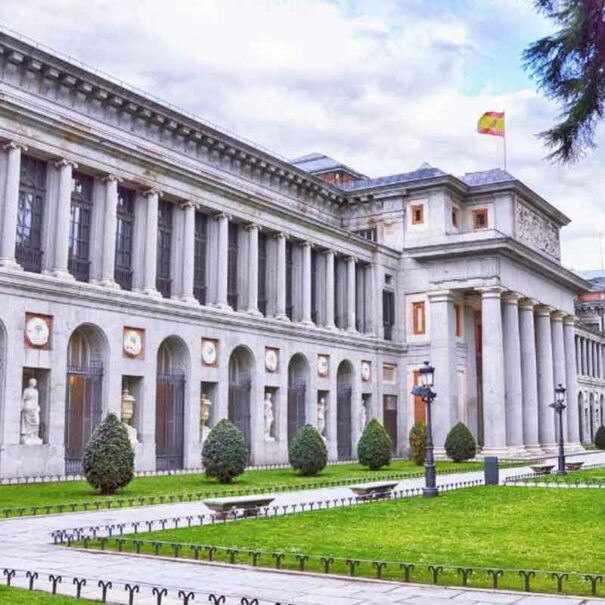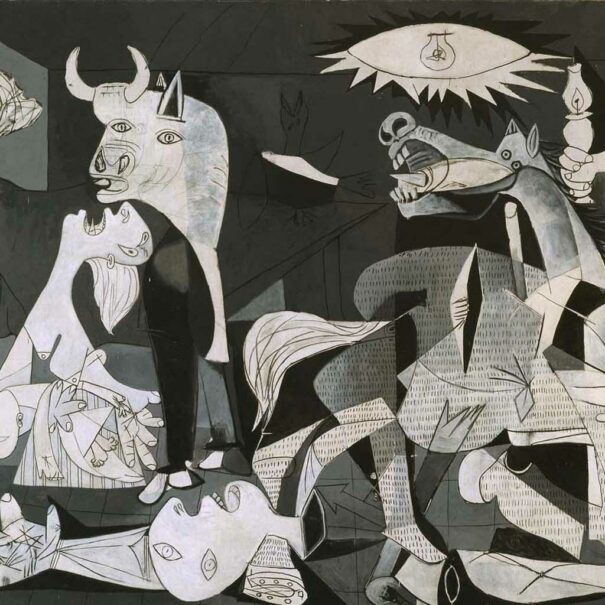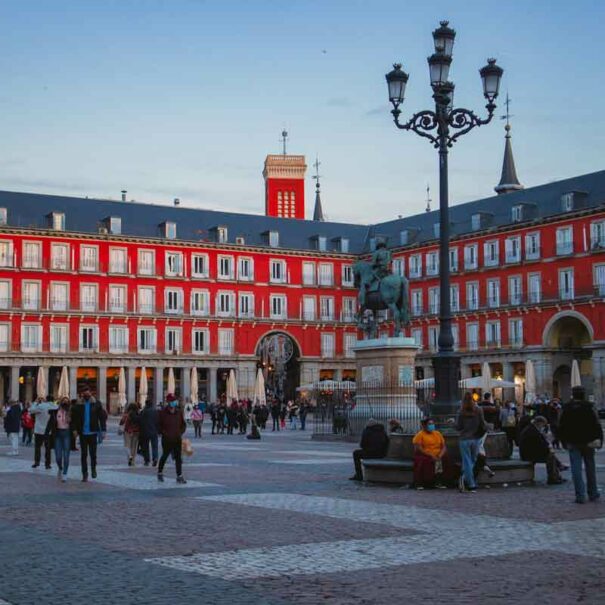Discover Pablo Picasso's famous Guernica painting
The Reina Sofia Museum in Madrid is home to one of artist Pablo Picasso’s most famous paintings. Find out in this article how to decipher and understand this work denouncing the Spanish Civil War (1936 – 1939).
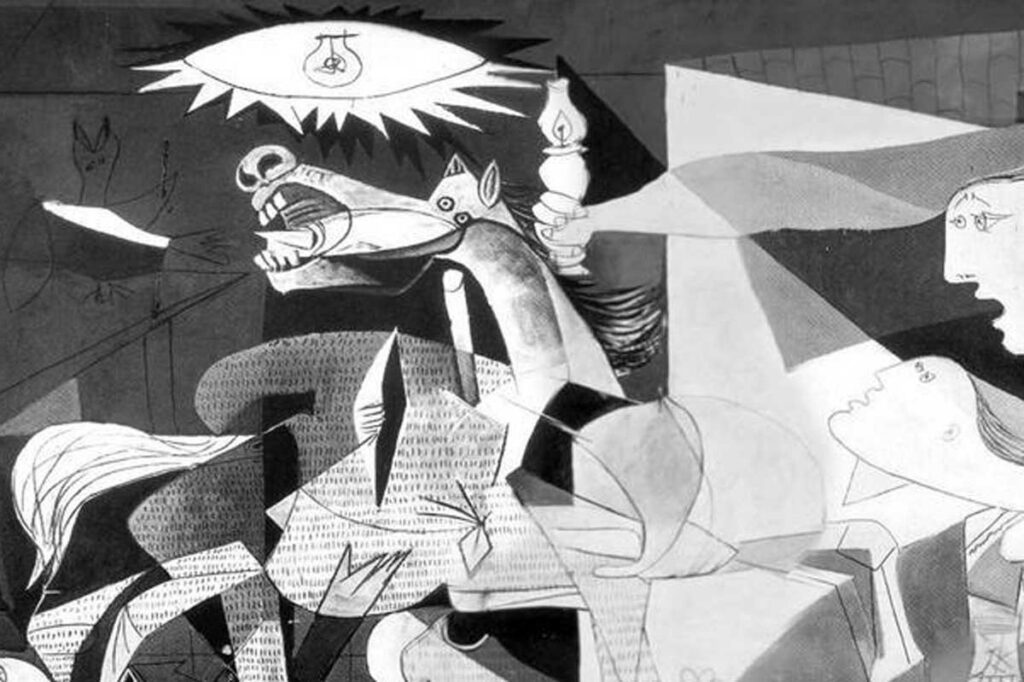
The background to Pablo Picasso's painting Guernica
A must-see painting in the Reina Sofia Gallery, Guernica was commissioned from Picasso by Francisco Largo Caballero’s Republican government in response to the April 26, 1937 bombing of the Basque town of Guernica.
This attack was carried out by the German air force in Franco’s service during the Spanish Civil War.
The work was initially conserved at the Museum of Modern Art of New York (MOMA) for almost 40 years. In 1981, it returned to Spain to be exhibited at the Prado Museum, and since 1992, when the gallery was inaugurated, it has been on view at the Reina Sofia museum.
Technical characteristics of the painting Guernica
Pablo Picasso’s famous Guernica was painted on a very large canvas, its imposing size making it one of the largest paintings in the capital and in the world. Picasso chose to use only black and white to achieve chiaroscuro effects and highlight certain areas of the painting.
Dimensions of guernica painting
Pablo Picasso’s “Guernica” measures 349.3 cm high and 776.6 cm wide. It is one of the largest paintings in the world.
How long did it take Pablo Picasso to paint Guernica?
Pablo Picasso painted Guernica in the space of a month and a half. He began work on it in May 1937 and completed it in June 1937.
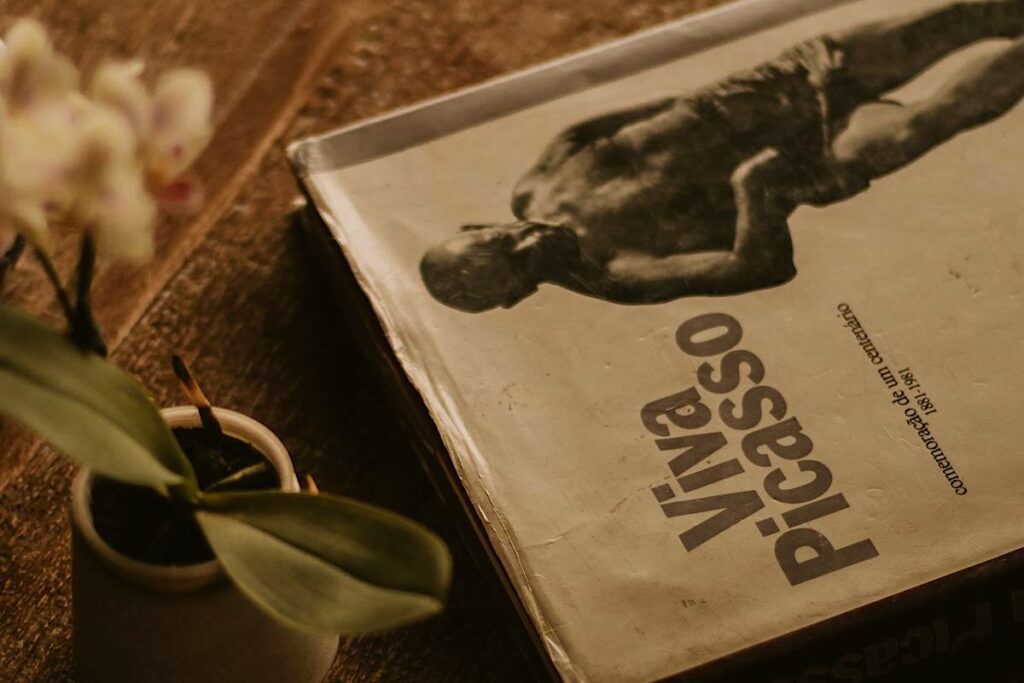
Analysis of Pablo Picasso's masterpiece Guernica
In this analysis, we’ll look at 4 key points of the painting. We recommend that you take advantage of your stay in Madrid to discover this painting during a visit to the Reina Sofia Museum with an English-speaking guide specializing in art history.
What does the lamp represent in the Guernica painting?
Located in the center of the canvas, the lamp is one of the first elements seen when observing this painting. There are many interpretations, the most classic being that this lamp in the shape of an eye represents the artist’s vision of the world around him and, above all, of the situation in Spain.
What do the horse and bull represent in the Guernica painting?
The horse and bull are rich in meaning: on the left is a bull, symbolizing nationalism, violence and brutality. To the right of the bull is a horse, whose expression is strong and conveys fear, as she suffers as the bull’s victim. Picasso wanted to represent the Republicans through this horse.
The ghost of the Guernica painting
On the right-hand side of the painting is a ghost holding a candle, a metaphor for the outside world witnessing the massacre. The candle, in turn, refers to the world seeking to understand and explain this sad event.
The soldier on the ground
At the bottom of the painting is a soldier on the ground with a broken sword, shown suffering and fighting to the death. Here, the soldier represents the republicans, who fought to the bitter end with insufficient means to face the nationalists.
Where is the Guernica painting today?
Pablo Picasso’s painting is housed in Madrid’s Reina Sofia museum. It can be seen in one of the museum’s rooms.
Reina Sofia Museum, where you can see Pablo Picasso's Guernica
To immerse yourself in this symbolic work, we recommend a visit to the Reina Sofia Museum with an English-speaking guide.
How to get to the Reina Sofia Museum
Getting to the museum couldn’t be easier: take the metro (line 1) and get off at the Atocha train station, or take the bus or a cab to save time and arrive directly at the foot of the gallery.
Reina Sofia address: Calle de Santa Isabel, 52, 28012 Madrid
Opening hours of the Reina Sofia Museum
The Reina Sofia Museum is open most of the week. Here are the opening times*:
Monday: 10:00 am – 9:00 pm
Tuesday Closed
Wednesday – Saturday: 10:00 am – 9:00 pm
Sunday: 10:00 am – 2:30 pm
Public holidays: the museum will be closed on the following days:
January 1 & 6 / May 1 / May 15 / November 9 / December 24, 25 & 31

